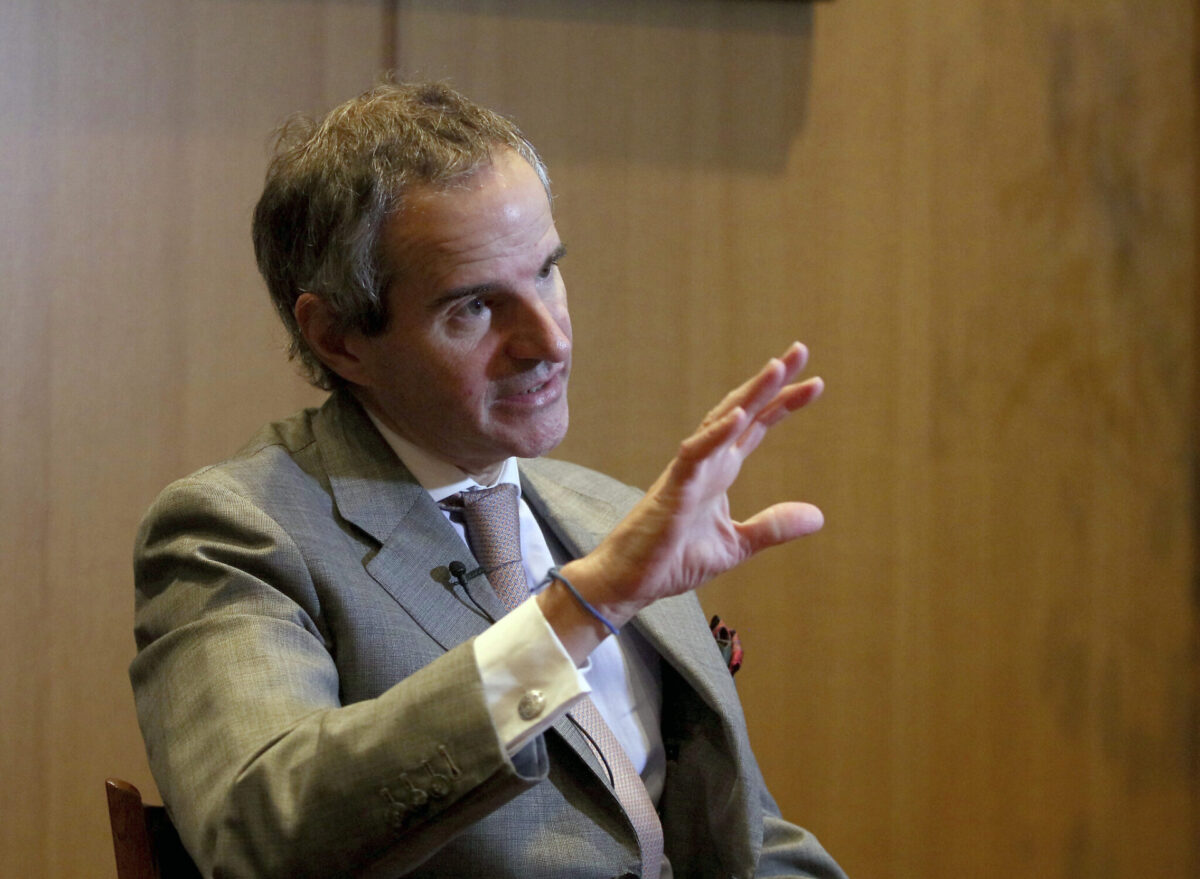The head of the U.N.’s nuclear watchdog says his monitoring program in Iran is no longer “intact” after Tehran refused requests to repair cameras at a key facility, creating the possibility the world will never be “able to reconstruct the picture” of what the Iranians have been doing.
In an interview with NBC News, Rafael Mariano Grossi states he’s been unable to establish the type of direct communication with Iran’s government that he had before a new hardline government run by President Ebrahim Raisi was elected in June.
“I have never spoken to the new foreign minister,” Grossi notes.
“I hope to be able to have the opportunity to meet with him soon because it’s very important … so when there is a problem, when there is misunderstanding, when there is a disagreement, we can talk about it. I used to have it before, and I would assume it that I would be the normal thing.,” he adds.
Grossi spoke during a visit to Washington as the fate of the Iran nuclear deal hangs in the balance, with world powers urgently urging Iran to return to negotiations to restore the deal and the U.S. saying time is running out.
Although Grossi says he had “no indication” that Iran is currently racing for a bomb, he says the world needs look no further than North Korea to understand what’s at stake. IAEA inspectors were kicked out of North Korea, also known as the Democratic People’s Republic of Korea, in 2009, and the country is now believed to have dozens of nuclear warheads.
“The case of the DPRK should remind us of what may happen if diplomatic efforts go wrong,” Grossi continued, adding, “It’s a clear example, it’s an indication, it’s a beacon. If diplomacy fails, you may be confronted with a situation that would have enormous political impact in the Middle East and beyond.”
The 2015 Iran nuclear deal, struck by Iran, world powers and the U.S. under former President Barack Obama, imposed significant restrictions on Iran’s nuclear program in exchange for relief from sanctions. Former President Donald Trump pulled the U.S. out of the deal in 2018 and reimposed harsh sanctions, leading Iran to brush off many of its commitments under the deal and to enrich uranium to 60 percent purity — near weapons-grade.
The Joe Biden administration and European partners want to restore the deal but after six rounds of talks, negotiations have stalled following Raisi’s election. Now the United States and Israel are speaking more openly about a “Plan B” – widely perceived to mean a military option to stop Iran’s nuclear program if diplomacy fails.
“We are prepared to turn to other options if Iran doesn’t change course,” Secretary of State Antony Blinken said this month during a joint appearance with Israel’s top diplomat.
Iran’s mission to the United Nations didn’t respond to a request for comment. Iran has always maintained that its nuclear program is for peaceful civilian purposes.
Earlier this year, after Iran stopped allowing IAEA inspectors to conduct snap inspections required under the 2015 deal, Grossi brokered a “stopgap” arrangement in which Iran would allow IAEA cameras to keep running. That way if the deal, known as the JCPOA, were restored, global nations could piece together what had occurred during the period when it lapsed.
Grossi says Iran has allowed the IAEA to access most of its cameras to service them with new batteries and memory cards, with one important exception: A facility in the Tehran suburbs that makes centrifuge parts and was damaged in June in what Iran says was an act of sabotage by Israel. Iran has cited its ongoing investigation into the attack in refusing IAEA access to the site, Grossi adds.
Without that access, the IAEA’s monitoring and verification program in Iran is “no longer intact,” Grossi says.
“It hasn’t paralyzed what we are doing there, but damage that has been done, with a potential of us not being able to reconstruct the picture, the jigsaw puzzle,” Grossi states, adding, “If and when the JCPOA will be restarted, I know that for the JCPOA partners to go back to an agreement, they will have to know where they are putting their feet.”
As North Korea grows its nuclear arsenal and tests new weapons, including a ballistic missile believed to be fired from a submarine, Grossi sounded optimistic that diplomacy with Pyongyang could eventually be re-started. He says that he and Blinken, who met with Grossi during his Washington visit, have been discussing the possibility of “trying to re-engage.”
“So there will be a possibility to go back there with our inspectors,” Grossi notes, although he adds it’s impossible to know now whether the goal would be partial or full denuclearization given that the North already has nuclear weapons.
He says given the proliferation of sites across North Korea’s sprawling nuclear program, creating an inspections regime there would be significantly harder than in Iran.
“It would be a very big effort,” Grossi adds.
